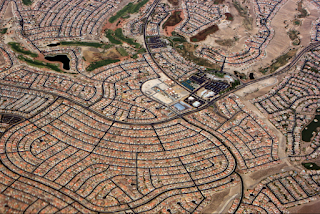 "You control our world. You’ve poisoned the air we breathe, contaminated the water we drink, and copyrighted the food we eat. We fight in your wars, die for your causes, and sacrifice our freedoms to protect you. You’ve liquidated our savings, destroyed our middle class, and used our tax dollars to bailout your unending greed. We are slaves to your corporations, zombies to your airwaves, servants to your decadence.
"You control our world. You’ve poisoned the air we breathe, contaminated the water we drink, and copyrighted the food we eat. We fight in your wars, die for your causes, and sacrifice our freedoms to protect you. You’ve liquidated our savings, destroyed our middle class, and used our tax dollars to bailout your unending greed. We are slaves to your corporations, zombies to your airwaves, servants to your decadence."You’ve stolen our elections, assassinated our leaders, and abolished our basic rights as human beings. You own our property, shipped away our jobs, and shredded our unions. You’ve profited off of disaster, destabilized our currencies, and raised our cost of living. You’ve monopolized our freedom, stripped away our education, and have almost extinguished our flame. We are hit… we are bleeding… but we ain’t got time to bleed. We will bring the giants to their knees and you will witness our revolution!"
-- JESSE VENTURA
***
In many areas, there is at least room for debate on whether a proposed action will have a positive or a negative effect on the way we live. I certainly wish we had had more foresight in the years directly after World War II, when unprecedented prosperity resulted in some unfortunate decisions. |
| Family farms |
But with the postwar demand for consumer goods -- automobiles, refrigerators, televisions and the like -- and the fact that mechanical advances had made farming much less labor intensive, many would-be rural residents found themselves in cities.
Garth Brooks looked at it in his song, "Alabama Clay," about a young man who was bored in the country and went to Detroit to work in the auto plants.
"Now the city's just a prison without fences, his job is just a routine he can't stand. And at night he dreams of wide open spaces, fresh dirt between his toes and on his hands."
Yes, the grass is always greener.
Or at least it looks that way for a while.
Eventually, whether you're in a big city or a sprawling suburb, you realize how different life is from small town or country life. Back home, you knew your neighbors and also knew you could rely on them when you needed help with something. You were part of a community.
I actually saw the outer edges of that when I lived in Greeley, Colorado, from 1986-88. My picture appeared in the paper four days a week as a columnist, and I was forever meeting people around town who recognized me and introduced themselves. When I left in 1988, the population was about 55,000. Now it's nearly double that, so it may not be the same place at all.
 |
| Suburbia in the extreme |
Closer in to cities, high-rise apartment buildings either created massive traffic and parking problems or in the best cases worked well with mass transit.
Of course, the U.S. population at the end of WWII was 140 million, and it's now about 315 million.
Many of the things that have been done have been part of dealing with that growth. Look at the food supply, at how much of our food now includes genetically modified organisms (GMOs). It's probably true that without GMOs, we couldn't grow enough food to feed everyone.
But one thing very wrong -- something Ventura would certainly oppose -- is the effort by companies like Monsanto to be allowed to use GMOs without mentioning that the food contains them. One might think people then would assume all the foods contain them, but the companies involved seem to be wagering on people's ignorance and disinterest.
Of course, it's really not possible to feed everyone without so-called modern techniques. If all 315 million Americans suddenly decided to buy organic foods, there wouldn't be nearly enough to go around.
So yes, things slip away and we lose control when we don't pay attention. Vigilance isn't just necessary when it comes to foreign enemies. If we're not vigilant, we're just as likely to lose what matters to enemies from within too.

No comments:
Post a Comment